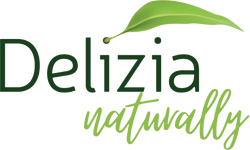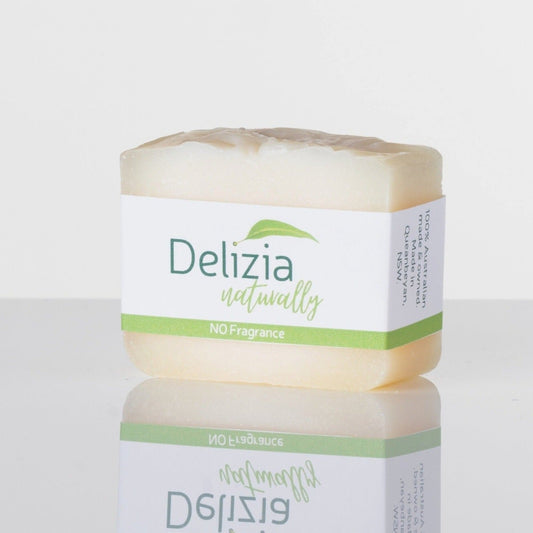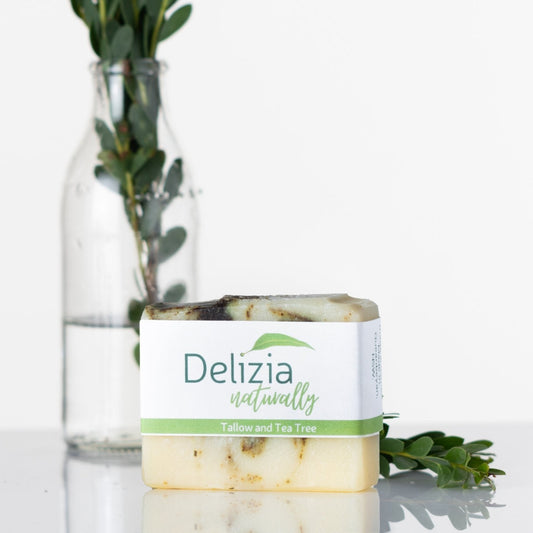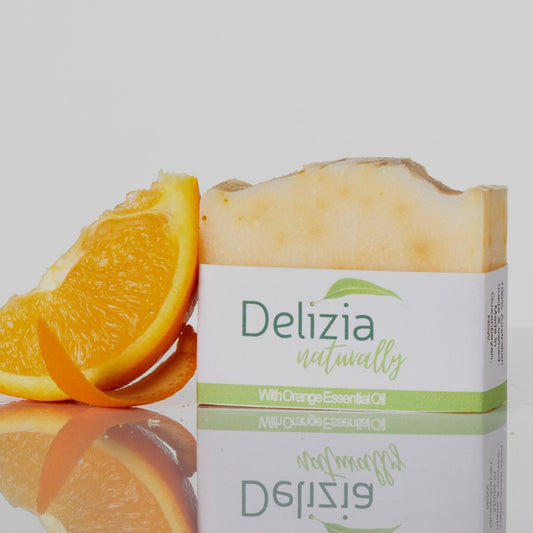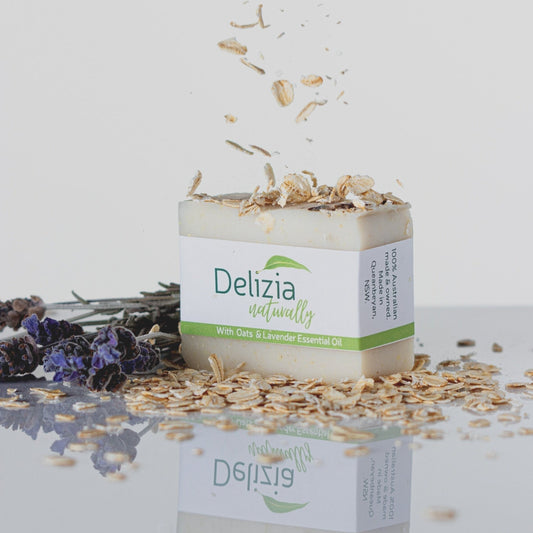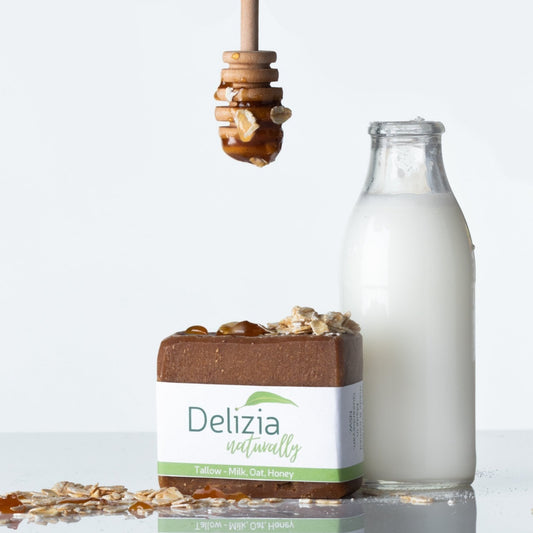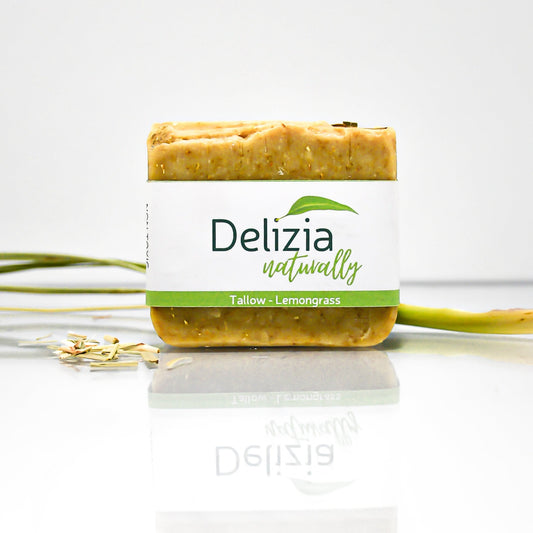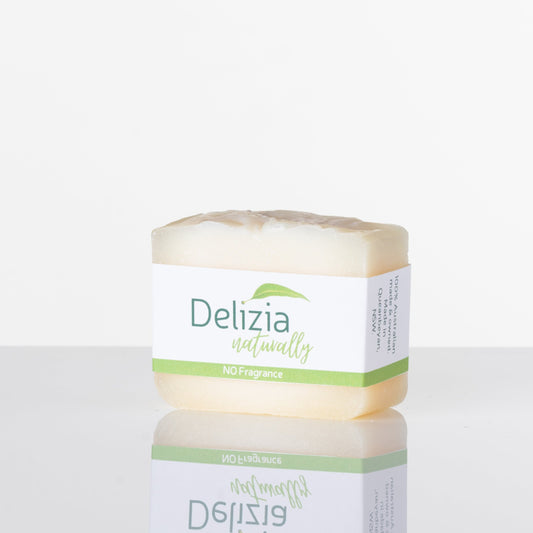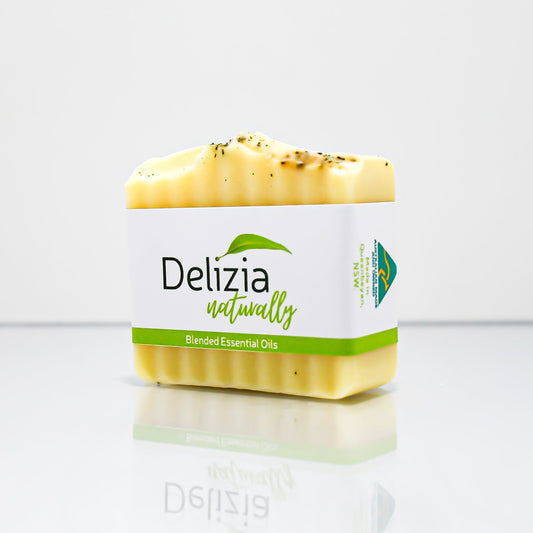
This blog post is to address some erroneous information out there about Sodium Tallowate.
Sodium Tallowate is made of two terms:
Tallow (Beef/Sheep fat) + Sodium Hydroxide (Lye) = Sodium Tallowate. In basic words the process of saponification makes tallow soap. Sodium Tallowate is just the technical name.
Similarly Sodium Olivate, is made up of two terms:
Olive Oil + Sodium Hydroxide (Lye) = Sodium Olivate. It again is just the technical name for soap, in this case Olive oil soap.
There is some information circulating this big bad thing, and sometimes useful, thing we call the Internet saying that Sodium Tallowate (Tallow soap) is bad for you.
Before reading any information on tallow or tallow products have a look at the source or the author. Is it someone who favours vegetarianism/veganism or is carnivore or middle of the road? Then you will see how the perspective of the literature is framed. Full disclosure, I am an omnivore. I will eat meat, use tallow, AND eat vegetables and I also value both types of soaps. I think it is unkind to demonise one method over another. A couple of things from the Delizia Naturally perspective:
We use Tallow in most of our soaps. For the following reasons:
1. My ancestors used it and I carry on the tradition. They had an innate respect for animals and land produce and used everything of an animal or vegetable. The idea of 'nose to tail' was well known to my family long ago. They truly were a zero waste family.
2. Tallow is a by-product of the meat industry - when I started making tallow soap and skincare products to sell, the first 20kg of beef fat a farmer gave me for free as he said he usually just composts it. This is a farmer who owns a grass fed and certified regenerative farm in Meringo NSW - Australia. The cattle are as happy as they can be. They are not fed hormones or mistreated. We now have a circular economy established. He sells me the fat, we make soap and sell it back to him to sell to his customers when they order meat from him. To assume that the fat used for ALL tallow soap is somehow derived from cattle feed lots and cruelty to animals is incorrect. We have sustainability in mind and a zero waste and 'nose to tail' approach when sourcing our fat.
3. We do not use plastics in our storage of products. To this end, we have not yet been able to launch products as we are waiting for non plastic solutions. We note that the creation of new plastics and to some degree the effort/emissions required to even recycle plastic has a negative impact on the environment. I often see new soap and skincare brands popping up that claim to be vegan but use plastic in the storage of their products. Plastic is harmful to the environment - in it's creation and in the microplastic waste it produces when it is discarded.
4. The creation of seed oils and this industry has forced a shift away from using animal fat in soap - as it once was used centuries ago. We can thank Proctor and Gamble for this development. See here our blog on the history of industrialised seed oils, and scroll down to see the story of Crisco, and how they actually marketed hydrogenated seed oils as food. Margarine anyone? https://www.delizianaturally.com.au/blogs/blog/saturated-vs-polyunsaturated-fat
So when we see information championing seed oils and veganism, we should be careful to note that the industrialisation of seed oils is not ecofriendly nor is it emission free. For example it is widely known that some vegetable based crops are the agricultural driver of deforestation worldwide. I state this so that the comments about 'tallow soap as evil' can be taken on balance.
5. Tallow is highly compatible to human skin. You may not know this, but if you are reading this, then you are a human and also an animal, a mammal in fact. A cow is a mammal too and wouldn't it be beneficial to use a similar product that they too have on their skin? Tallow resembles our natural sebum so much (the oil produced by the glands in our skin) that in Latin, tallow is translated as sebum. Wouldn't a soap like this be suitable for sensitive skin? Check out our blog here for the benefits https://www.delizianaturally.com.au/blogs/blog/organic-grass-fed-tallow-tallow-balm-tallow-mositurisers-tallow-soap
6. Most soap and skincare makers that use tallow recognise the work required to prepare tallow (even more so if they render it themselves), the beauty, value and expense of the product - both to the animal and the maker and will not tolerate tainting the product with anything such as alcohol or chemicals, tallow soap makers know that tallow is just too valuable. At Delizia Naturally we make plain 100% tallow bars and when we do make a variety it is only ever with essential oils and botanicals. We never use synthetic fragrance oils, other synthetically made micas or colourings, or products not naturally acquired. It will taint the product and it's just not in our ethos. This is similar for many soap and skincare makers who use tallow. Knowing the value and sacrifice of the ingredient demands honour and respect and I personally do not know anyone who adds synthetic elements to the product.
*In summary tallow has been used by my family for hundreds of years and it is the traditional way to make soap and skincare. Sodium Tallowate is not evil, it's just tallow soap made the ancestral way using very basic and natural ingredients.
#tallow #talllowsoap #tallowskincare #grassfedtallow #regenerativelyfarmedtallow #australiantallow #naturalsoap #nontoxicsoap
